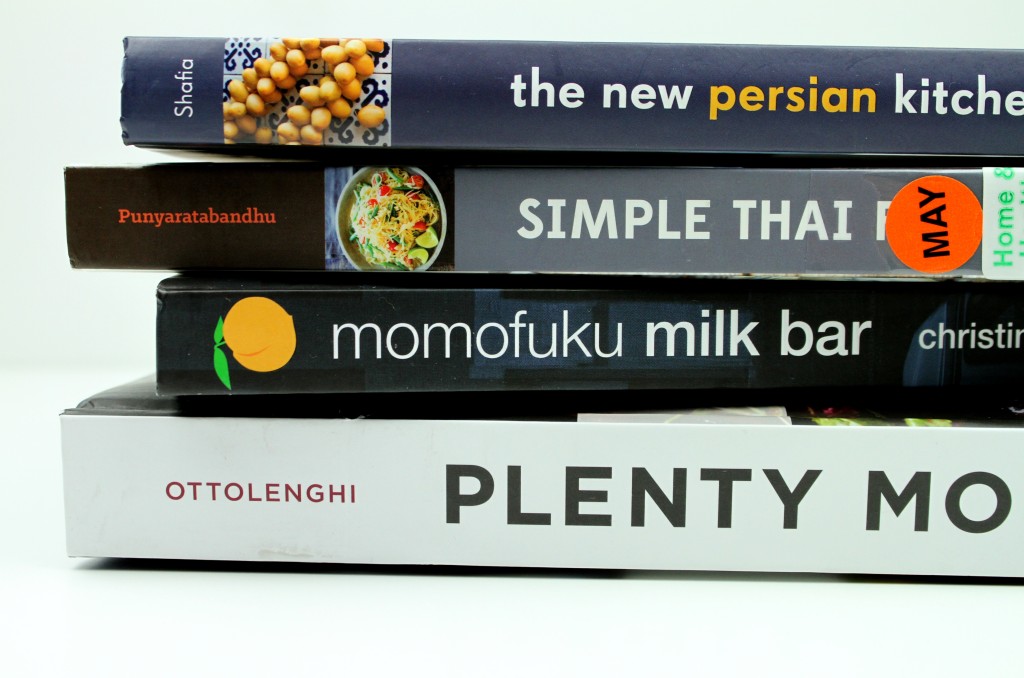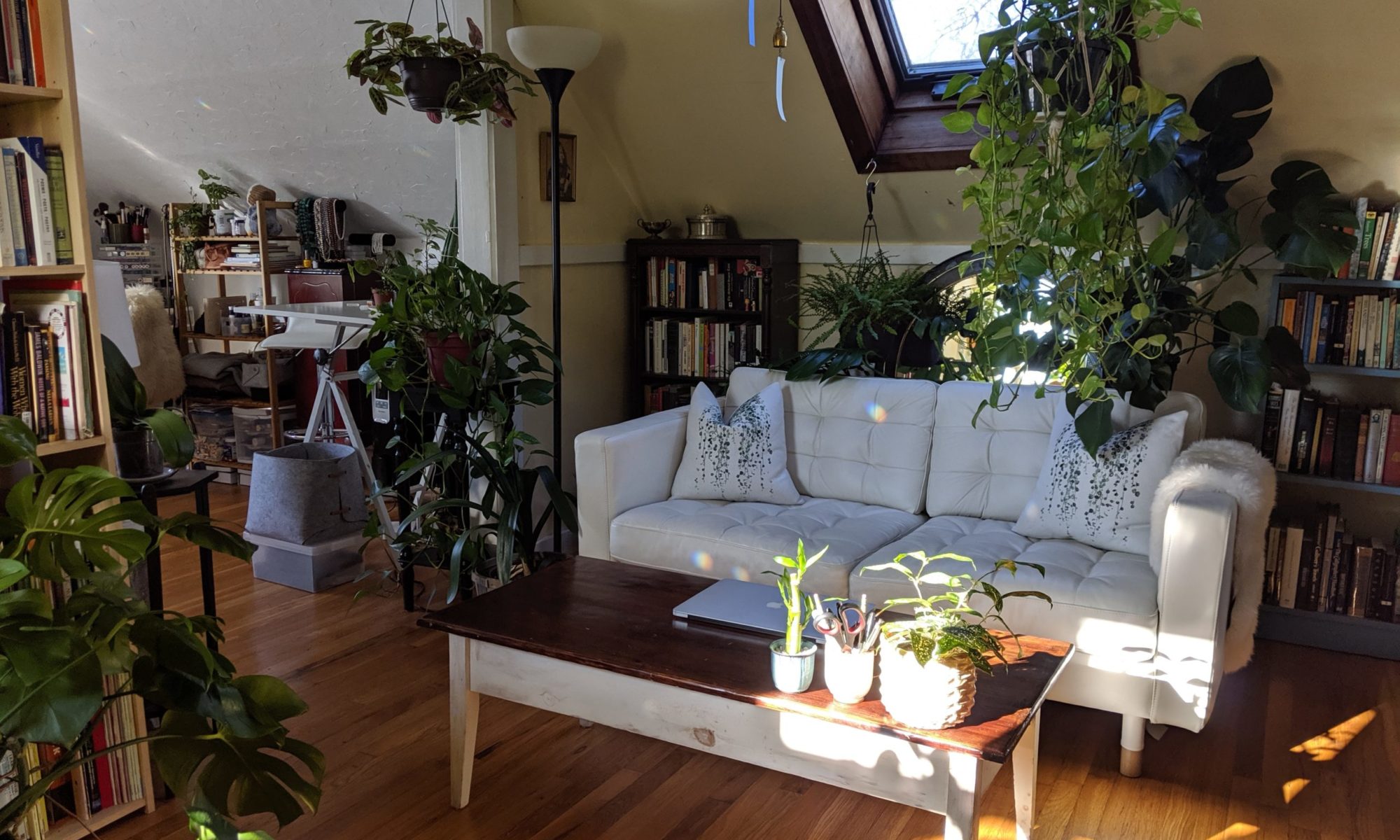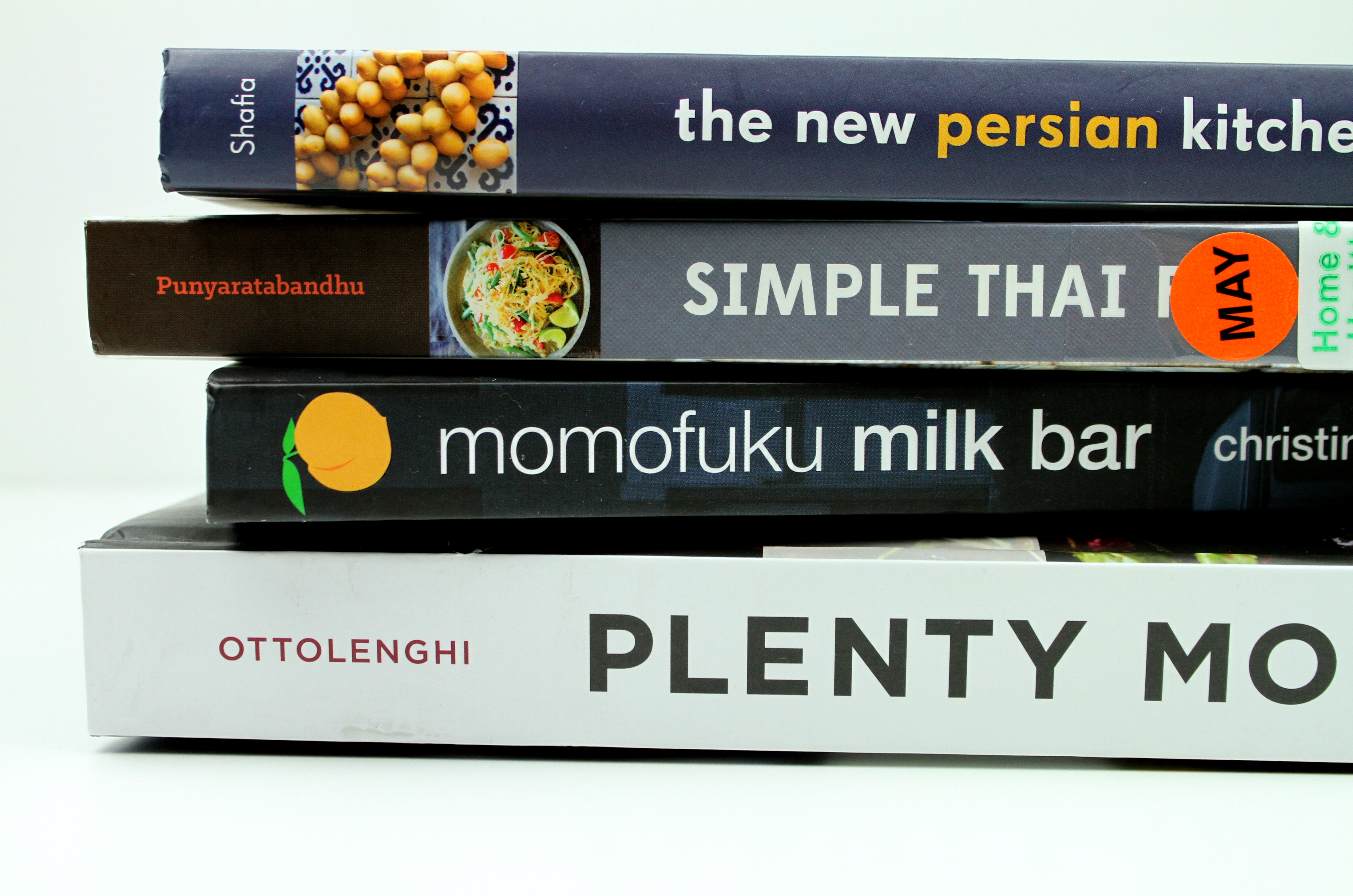 I am a frequent reader of cookbooks, some for practicality, some for fantasy, some for inspiration. Being a better cook is important to me (is part of my aspirational identity, part of my style, is non-negotiable), as is trying new foods and learning about other cultures through food. Here’s the stack I’m browsing currently:
I am a frequent reader of cookbooks, some for practicality, some for fantasy, some for inspiration. Being a better cook is important to me (is part of my aspirational identity, part of my style, is non-negotiable), as is trying new foods and learning about other cultures through food. Here’s the stack I’m browsing currently:
The New Persian Kitchen, Louisa Shafia — I often like, in the case of cookbooks that focus on a particular culture, the section of the book that outlines specialty ingredients, describing their peculiarities and uses, and where you might find them, what they might be substitutes for, or what you might substitute for them. Expanding the culinary glossary. Immediately I imagine my own uses for them, how they might add interest to my existing repertoire. Immediately I want to go find them, if I don’t already have them. Immediately I want to use them if I do already have them. So far this is a great cookbook in that I want to make many of the dishes and I’m interested to read the small details, which seem well done here, about preparation. Not only preparation of the dish itself, but lots of good information about preparation of the ingredients. Ex. After reading this, I will be soaking some grains before cooking.
Simple Thai Food, Leela Punyaratabandhu — Also quite good, more the kind of cookbook I graze, skimming for what I want to read in more detail and absorbing the broad concepts, basic formulas, for later application rather than intending to cook a specific recipe (partly because many of the dishes are so flexible). Lots of explanation again, useful and clear, a little bit of bio mixed in, anecdotal evidence, all to the point. I love Thai food.
momofuku milk bar, Christina Tosi — The book born of the famous bakery, this is a fantasy read. These dishes are over-the-top, beautiful, innovative…complicated. Time-intensive. Gadget-intensive, stuff-intensive. I don’t really want to make them, but they are cool. Well, I might try a few of the easier ones…
Plenty More, Yotam Ottolenghi — I’ve enjoyed all of Ottolenghi’s books, interesting and uncomplicated (that is, often not many ingredients, though certain ingredients are complicated in themselves) combinations. Again I mostly skim here for concepts. You don’t need the recipe, you just need to remember the concept of the combination that is the key to the interesting flavor profile, and store it away, let it join the mix of the other flavor profiles in your flavor bank. His combinations inspire your own, which inspire still more, and so on. The kind of book that makes me hungry.

